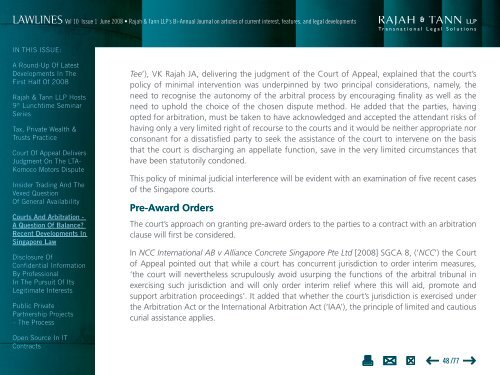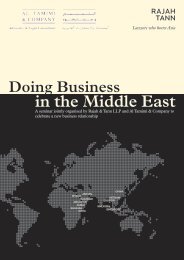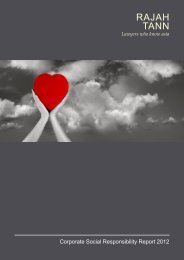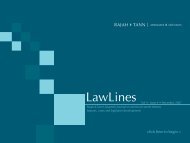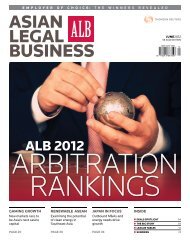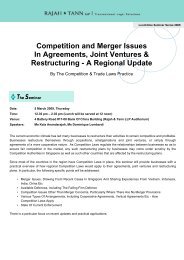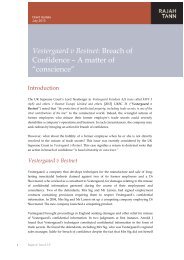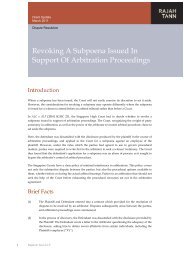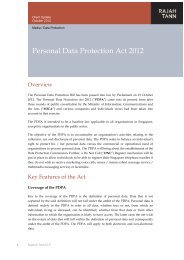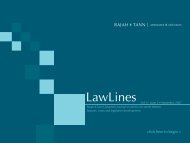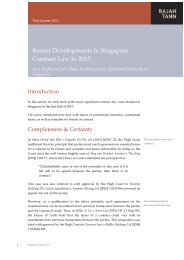Lawlines Vol 10 Issue 1 - eOASIS - Rajah & Tann LLP
Lawlines Vol 10 Issue 1 - eOASIS - Rajah & Tann LLP
Lawlines Vol 10 Issue 1 - eOASIS - Rajah & Tann LLP
You also want an ePaper? Increase the reach of your titles
YUMPU automatically turns print PDFs into web optimized ePapers that Google loves.
<strong>Vol</strong> <strong>10</strong> <strong>Issue</strong> 1 June 2008 • <strong>Rajah</strong> & <strong>Tann</strong> <strong>LLP</strong>’s Bi-Annual Journal on articles of current interest, features, and legal developmentsIN THIS ISSUE:A Round-Up Of LatestDevelopments In TheFirst Half Of 2008<strong>Rajah</strong> & <strong>Tann</strong> <strong>LLP</strong> Hosts9 th Lunchtime SeminarSeriesTax, Private Wealth &Trusts PracticeCourt Of Appeal DeliversJudgment On The LTA-Komoco Motors DisputeInsider Trading And TheVexed QuestionOf General AvailabilityCourts And Arbitration -A Question Of Balance?Recent Developments InSingapore LawDisclosure OfConfidential InformationBy ProfessionalIn The Pursuit Of ItsLegitimate InterestsPublic PrivatePartnership Projects– The ProcessTee’), VK <strong>Rajah</strong> JA, delivering the judgment of the Court of Appeal, explained that the court’spolicy of minimal intervention was underpinned by two principal considerations, namely, theneed to recognise the autonomy of the arbitral process by encouraging finality as well as theneed to uphold the choice of the chosen dispute method. He added that the parties, havingopted for arbitration, must be taken to have acknowledged and accepted the attendant risks ofhaving only a very limited right of recourse to the courts and it would be neither appropriate norconsonant for a dissatisfied party to seek the assistance of the court to intervene on the basisthat the court is discharging an appellate function, save in the very limited circumstances thathave been statutorily condoned.This policy of minimal judicial interference will be evident with an examination of five recent casesof the Singapore courts.Pre-Award OrdersThe court’s approach on granting pre-award orders to the parties to a contract with an arbitrationclause will first be considered.In NCC International AB v Alliance Concrete Singapore Pte Ltd [2008] SGCA 8, (‘NCC’) the Courtof Appeal pointed out that while a court has concurrent jurisdiction to order interim measures,‘the court will nevertheless scrupulously avoid usurping the functions of the arbitral tribunal inexercising such jurisdiction and will only order interim relief where this will aid, promote andsupport arbitration proceedings’. It added that whether the court’s jurisdiction is exercised underthe Arbitration Act or the International Arbitration Act (‘IAA’), the principle of limited and cautiouscurial assistance applies.Open Source In ITContracts48 /77


